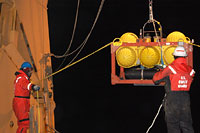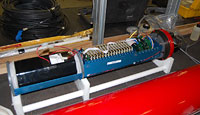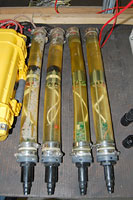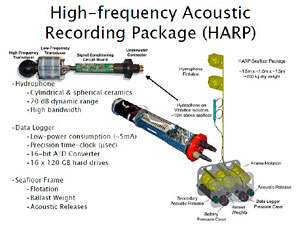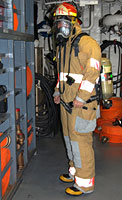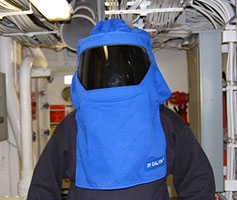

 | |||||||||||||||||||||
|
|
Journals 2009/2010Jonathan Pazol
September 14, 2009 What a difference a few days and a few degrees of latitude make. Last night we were at 72.07° N and by 2 am it was pitch black outside. There was no moon, no stars, and the little light from the ship didn't reach more than a few feet - I could not even see the surface of the water. It was as dark as I've ever seen. Living outside of Chicago, I don't get this experience very often, and I imagine most people in the continental US don't either. We spent much of the early morning re-deploying Ethan Roth's HARP (High-frequency Acoustic Recording Package) moorings. These were the same acoustic (sound) recording devices that we picked up on our first day and that had been out in the Arctic Ocean recording sounds for almost a year.
After the cruise, Ethan will download the data from the 16 hard drives inside the data logger. It will be processed and converted into wav (digital sound files like those used for MP3 players) files. He will use the information as part of a long-term monitoring program back in his laboratory at Scripps Institution of Oceanography.
The HARP moorings (called moorings because they are anchored to the bottom, unlike buoys which float) contain a hydrophone that records the sounds of animals (primarily bowhead and beluga whales, ringed and bearded seals), some man-made noises, and even the dynamics and changes in the sea ice.
Floats, ballast tanks, and acoustic release devices (so the HARPs can be signaled to come back to the surface) make up the rest of the apparatus, as seen below. For more information on these devices and on this long-term project, go to SWAL (Scripps Whale Acoustics Lab) at cetus.ucsd.edu
With new lithium batteries, the 3 HARP moorings will record the sounds of the ocean until Ethan can hopefully come back on the Healy and pick them up next year. And, to continue my series of how many different types of safety equipment can the crew convince one teacher to put on in a 6-week period? (I think they do this as a form of entertainment). Here are some pictures of me wearing a fire suit and in a safety shield for fighting electrical fires.
|
||||||||||||||||||||
